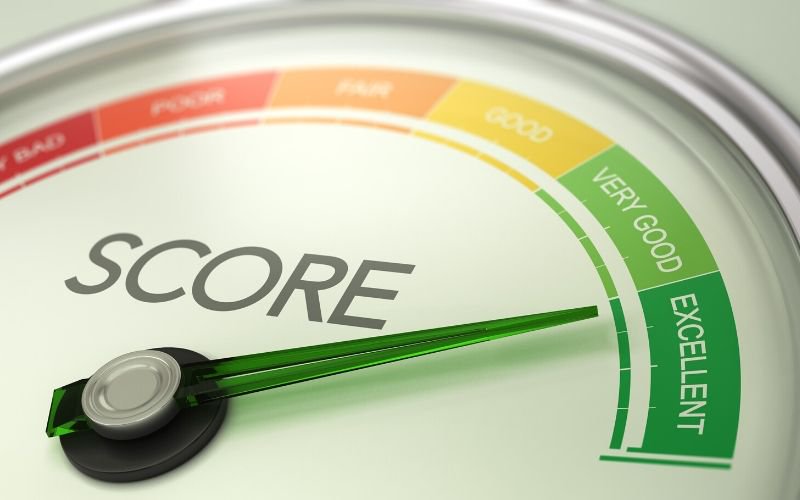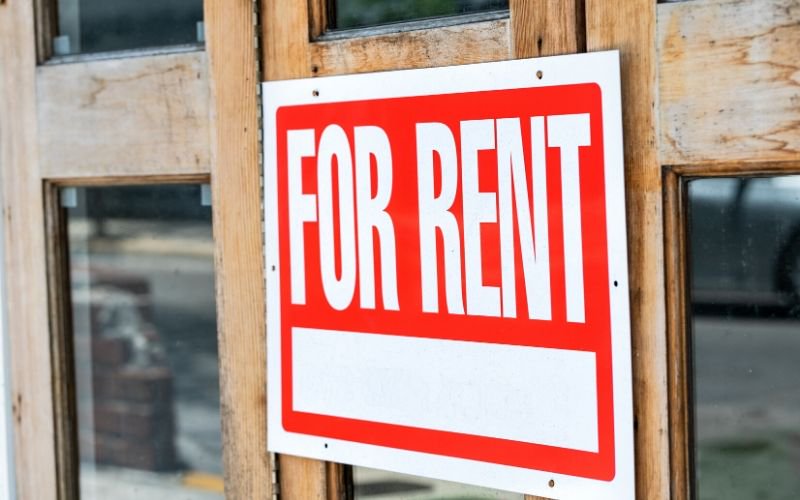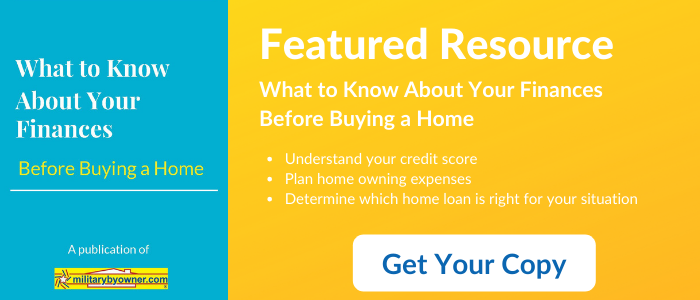
Photo from Canva
What you’ll find in this article:
Let’s talk about your credit. No one wants to, but we need to. Your credit score is seen as a reflection of how well you manage your finances, so it does matter when renting a home. But that doesn’t always seem fair, does it?
The number carries a lot of weight, and unfortunately, it falls easily but takes a great deal more effort to increase. Plus, nearly everything affects it! Many things are within our control (making payments on time, using credit cards responsibly, fighting debt), but many influential factors lie outside of our control (a recession, natural disaster, a decline in the housing market, unexpected medical expenses, etc.).
But your credit score doesn’t always communicate that. It’s very good at telling the negative story, but doesn’t exactly tell the comprehensive narrative explaining the why. Maybe your why is as simple as you pay cash for everything. It’s not that you have bad credit per se, it’s that you have low to none at all!
So, how do you work around that? How do you take a bad credit score and move forward, find a rental home, and increase that invasive number that dictates so much of our lives?
Related: Does Your Credit Score Matter When Renting a Home?
What's Considered a Bad Credit Score for Renting?

Photo from Canva
While credit does matter when renting a property, the threshold is typically lower in this market than in home buying, which makes sense, as many people turn to rentals as a reasonable alternative when they can’t obtain an appropriate loan to buy a home. Nerdwallet says, “620 is typically the minimum credit score needed to obtain a conventional loan, and 740 is the minimum score you need to get a good mortgage rate.” The VA home loan is a little more forgiving. They don’t set a minimum credit score requirement, but lenders might, and it’s typically 620.
When it comes to renting, the minimum credit score that most landlords will accept is the same as the VA loan — 620. Claire Tsosie and Amrita Jayakumar at Nerdwallet share that many landlords will look past the number and deeper into the why (more on that in a minute).
Take a look at What’s Missing on Your Credit Report?
back to top
Can You Rent a Home with a Bad Credit Score?
YES! You can rent a home with bad credit. Do I mean that anyone with any kind of bad credit can rent? No. Everyone has variables and factors that will influence a landlord's decision to accept an applicant with a less than perfect credit score. That said, landlords also come with their variables. While one will give a hard no, another one who’s been in the same position, knows what a recession can do to personal finances, or simply feels compassion, will say yes. It’s all about finding a landlord who’s willing to accept your circumstances for what they are.
Take a look at how landlord and Elizabeth Dole Foundation Caregiver Fellows Program Coordinator Emery Popoloski handles applicants with low credit scores:
We use a property manager, and sometimes a tenant may have a bad score due to a bad period in their life, like a job loss or divorce, and we will look at other factors (i.e. current employment, if there are any evictions or small claims, rent to income and debt ratio) to help with the selection process. It's when evictions and small claims for unpaid rent/rental damages, and/or an extremely high debt to income ratio that I get nervous.
The moral of the story is that there is hope, even if you have less than perfect credit.
Ways to Rent When You Have a Bad Credit Score

Photo from Canva
We know that renting a home with bad credit (though not guaranteed) is possible, so how do you increase your chances and expand your options?
- Show proof of consistent income.
- Have a cosigner.
- Find a rental that doesn’t check your credit score.
- Provide stellar recommendations.
- Be willing to pay more.
- Rent on base.
It's all about being able to explain with the proof. No one wants an applicant with a 780 credit score with five late charges or a 520 with ten late charges as current as five days ago. That being said, most people will work with you. The key is renting within your means and explaining yourself. It’s also important to note that if you're a slightly less desirable applicant, you might have to go after the properties with less competition and therefore have a landlord who is willing to work with you. For example, a landlord with ten applications for a property that's been on the market for three hours will be less willing to accept you than someone who has zero applications and a property that’s been on the market for four weeks.
— Elizabeth Cosgrove, The Reluctant Landlord
back to top
Let’s switch gears for a minute.
If your ultimate goal is to buy property, consider a rent-to-own. If you’re not familiar with the idea, Justin Pritchard from The Balance defines a rent-to-own (or lease-to-own) as “a way to buy or sell something over time, giving the buyer an option to purchase at some point in the future.” In the context of real estate, it allows for an aspiring home buyer to rent a piece of property with the option to buy said home at the end of the lease agreement.
Why bring this up? Because this type of rental transaction can be a great option for aspiring home buyers with poor credit.
Here's why:
- Many homeowners advertising their property as a rent-to-own are willing to work with applicants with lower credit scores.
- It can help you buy time to build your credit score to qualify for a home loan
- You can lock in a decent sale price on the property.
Read more in What to Know About Rent-to-Own, because this type of transaction is not for everyone.

Photo from Canva
Tips to Improve Bad Credit
1. Carry a balance less than your credit limit.
The quickest thing to do is pay down the balance on credit cards to where you’re only carrying 25-30% of the credit limit. This will improve your score the most. DON'T close out any revolving credit lines because it will bring your available credit amount lower, thus messing up your utilization percentage. If it’s late payments that are bringing your score numbers down, unfortunately, the only fix for that is time, but it is a good idea to check your credit report from time to time and make sure there aren’t any erroneous late payments being reported that shouldn’t be. -
Natasha Harth, Fairway Independent Mortgage Corporation
2. Dispute errors on your credit report.
We’ve already discussed how much weight your credit score carries. So, if you notice anything incorrect on yours, then it’s important to get it taken off, right? The good news is, the Federal Trade Commission provides a lot of guidance on this.
Step 1: Tell the credit reporting company, in writing, what information you think is inaccurate. Use the FTC's sample dispute letter. Include copies (NOT originals) of documents that support your position.
Step 2: Tell the information provider (that is, the person, company, or organization that provides information about you to a credit reporting company), in writing, that you dispute an item in your credit report. Use this sample dispute letter.
3. Pay off debt.
Getting out of debt takes time. If you’re looking for help with how to pay down your debt, the Dave Ramsey’s debt snowball method might prove very effective for you:
Step 1: List your debts from smallest to largest regardless of interest rate.
Step 2: Make minimum payments on all your debts except the smallest.
Step 3: Pay as much as possible on your smallest debt.
Step 4: Repeat until each debt is paid in full.
4. Pay your bills on time.
Though it will take some time to see your credit score rise, paying your bills on time will certainly help keep it from falling.
Here are a few tips to help!
- Set up auto-pay.
- Create a finance only calendar.
- Consolidate bills.
- Schedule a time to pay bills.
- Give your payment time to process (pay early!).
See 5 Steps to Build Your Credit.
While you've no doubt seen how a less-than-perfect credit score can negatively affect your financial decisions, it doesn't necessarily eliminate all of them. When you know your credit score and why it is the number it is, you gain the power to advocate for yourself and (hopefully) secure a rental property.
Aside from working with what you've got, the best thing you can do is work to get that credit score up and expand your options moving forward.
By Danielle Keech
Thinking about buying a home? Download our free guide below to help get your finances in order first!


back to top